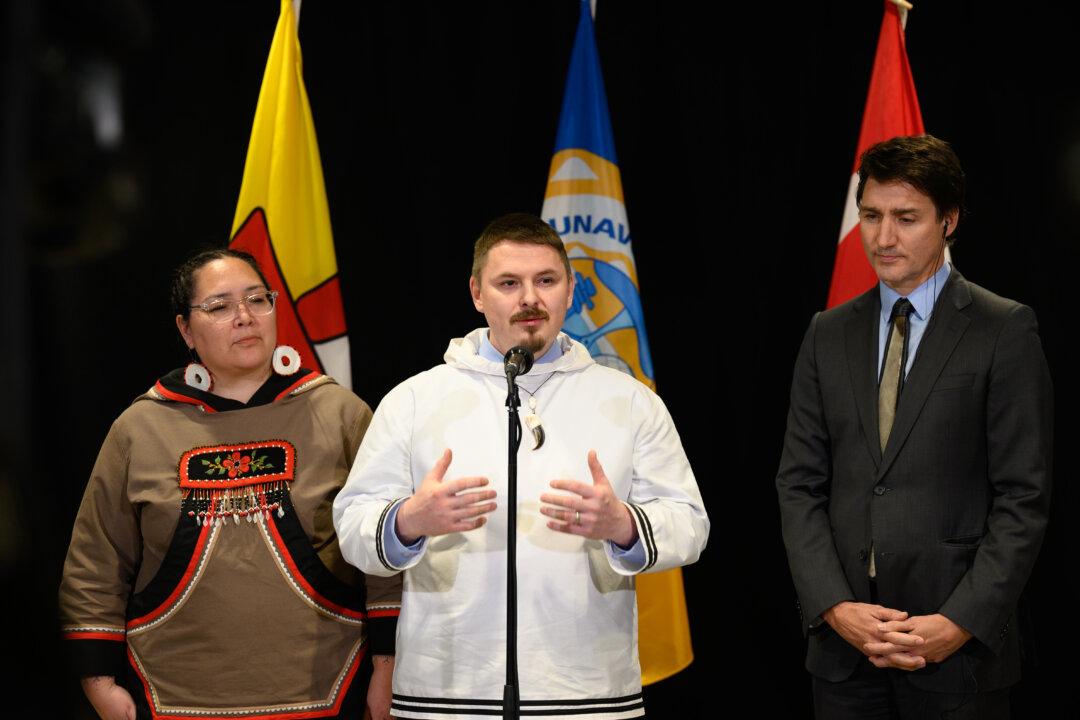In the largest land transfer in Canadian history, Nunavut, the primarily Inuit northern territory, was granted control of its own land, water, and resources by the federal government—known as “devolution”—on Jan. 18.
But the move is eliciting significant concerns from analysts who warn of geopolitical risks for a people ill-equipped to deal with the realities of increased competition in the Arctic from China and Russia.





